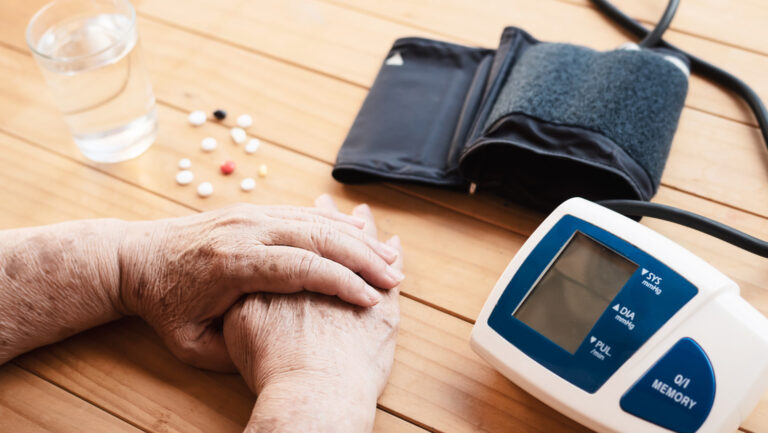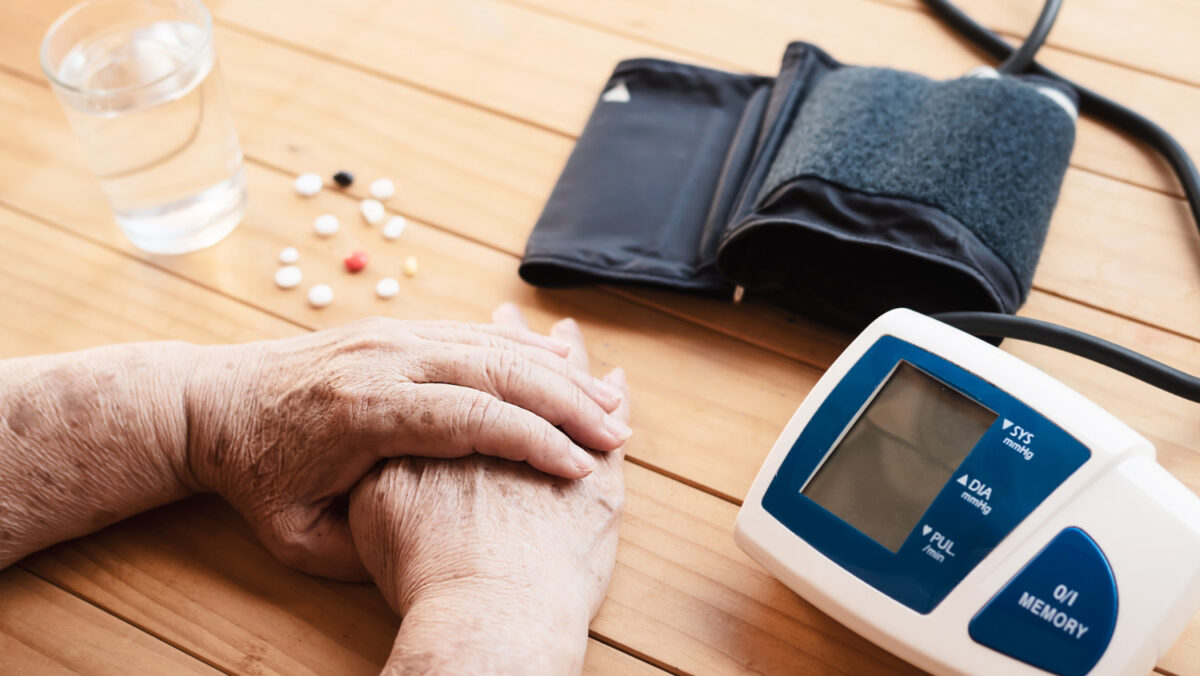/ บทความ / How blood pressure affects the body?

Blood pressure is the pressure of the bloodstream exerting force against the artery walls. It arises from the process of pumping blood. However, if there is high blood pressure or low blood pressure, it can affect the health of the body. Patients should be aware of their symptoms. for timely examination and finding ways to take care of themselves appropriately. Abnormal symptoms can be deducted by measuring blood pressure or regular health checks.
Blood Pressure
Blood pressure is the amount of pressure exerted by the bloodstream against the artery walls as a result of the heart’s pumping process. It can be divided into two parts: upper pressure and lower pressure and the differences are as follows:
- Systolic Blood Pressure is the blood pressure when the heart contracts or pumps blood to deliver blood into the blood vessels throughout the body.
- Diastolic Blood Pressure is the blood pressure as the heart relaxes as a result of the flexibility of the blood vessels.
- Normal: The upper number is in the range of 120-129 mm Hg and the lower numbers are in the range of 80-84 mm Hg (120-129/80-84 mm Hg).
- Optimal: The upper number is in the range of 90-120 mm Hg and the lower numbers are in the range of 60-80 mm Hg (90-120 / 60-80).
- Hypertension: The upper number is greater than 140 mm Hg and the lower numbers are greater than 90 mm Hg (140 / 90 mm Hg).
- Hypotension: The upper number is less than 90 mm Hg and the lower number is less than 60 mm Hg (90 / 60 mm Hg).
Hypertension
Normal blood pressure should not exceed 130/85 mmHg and blood pressure higher than 130/85 mm Hg is considered abnormal. More than 90% of people with high blood pressure have an undetected cause, but if detected, it is more likely to be caused by other diseases or conditions, such as heredity, kidney disease, and arterial stenosis. It is also caused by behavior or risk factors such as smoking and drinking alcohol, etc.
However, most high blood pressure patients usually have no symptoms at all. Complications in blood pressure can often be detected through annual health checks. Patients with high blood pressure may have pain, numbness in the neck, stiffness in the nape of the neck, dizziness when waking up and some people may have migraine throbbing headaches. If these symptoms occur, you should see a doctor immediately for immediate treatment as there may be a risk of disease that could cause a heart attack, cerebrovascular disease, kidney disease, and eye problems
Maintaining high blood pressure within normal parameters
Blood pressure is a condition that can occur at any age. If your blood pressure is found to be abnormal, you should see your doctor for treatment and continually behave properly in order to prevent further complications. Monitor symptoms and seek treatment to maintain blood pressure back to normal. Patients with high blood pressure can adjust behavior to keep the normal blood pressure as follows:
- Weight control for those who are overweight or underweight
- Consumption of healthy food
- Restricting the amount of salt and sodium in the diet
- Increasing physical activity or exercising regularly
- Limiting or abstaining alcohol
- Smoking cessation
Hypotension
Low blood pressure usually does not cause any symptoms but if the blood supply to the brain is insufficient, the temporary symptoms such as dizziness, blurred vision, nausea, palpitations, loss of balance, fainting, or shock with severe hypotension can occur. These symptoms of hypotension can cause a danger to physical health and life.
Maintaining Low Blood Pressure within Normal Parameters
Fainting when changing sitting positions or sudden standing is a symptom of low blood pressure. When these symptoms happen, you should stop all activities that you are doing. Sit down or lie down and drink water. Avoid the behaviors that will make your symptoms worse.
- Drinking the right amount of water helps to increase the amount of fluids in the body
- Sit or lie down immediately if you feel faint or dizzy, trying to raise your feet above your heart level to allow blood to flow to your brain
Regular check-ups can help you find any abnormalities in your body including high pressure or abnormally low. If you have any of the above symptoms and would like to make an appointment for a health check or get advice from a medical professional about high blood pressure, PrimoCare Medical Clinic is ready to take care of your health in its entirety. You can inquire or make an appointment in advance here.
Reference


